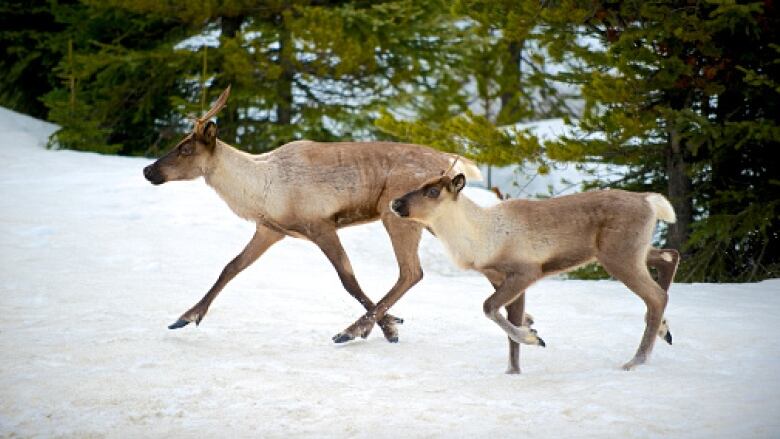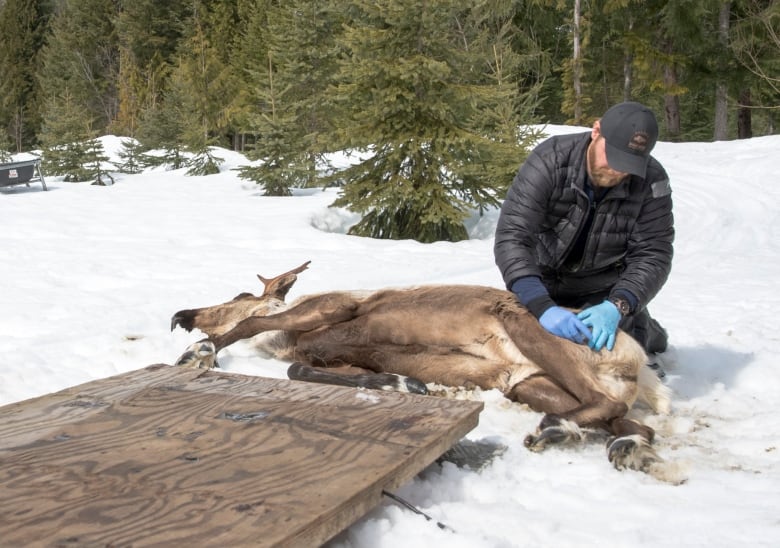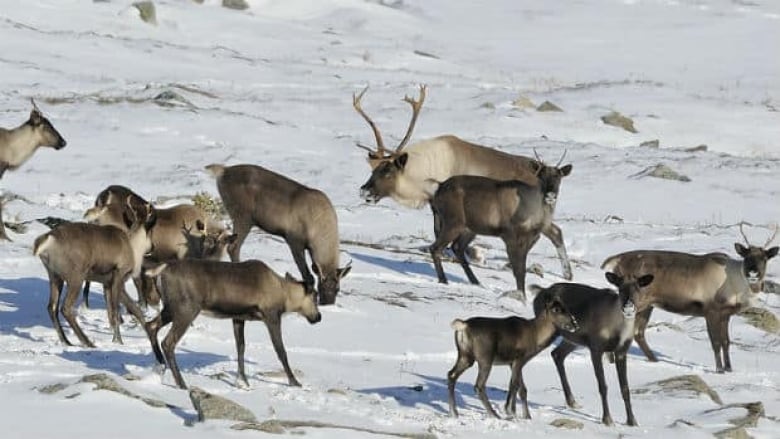Caribou have almost vanished from the U.S. a warning for Canada
Only herd that ranges south into contiguous U.S. is down to 3 animals

The southern mountain caribou is on the verge of disappearing from the American landscape and that's a dire warning to Canada, scientists say.
Last week, biologists flew over southern British Columbia to count the number of caribou in the last remaining herd that migrates south from B.C. to the U.S. the South Selkirk herd and what they saw stunned them.
B.C.'s caribou herd declined by more than 15 per cent over one year and the only herd that ranges into the contiguous U.S. is down to just three animals.
"It looks pretty dire, to be honest," said Nelson, B.C., conservationist Candace Batycki.
"Certainly, three animals we are calling that functional extirpation. It's the functional loss of the herd. It's hard to imagine even extreme measures being taken to improve the situation there."

It's not just in the U.S. where alarm bells are ringing. The southern mountain caribou a unique ecotype that lives in B.C.'s Southern Interior are dying out, and biologists don't know what to do to save them.
Efforts not working
The caribou are now the single most endangered mammal in the U.S. One avalanche, voracious wolf pack or even traffic accident and they are gone.
A cross-border panel of experts has been working for decades to save the South Selkirkherd.
They have transplanted other caribou into theherd three times;they've banned snowmobiling in huge swaths of B.C.; and they've kept logging out of 80 per cent of the herd's range.
The Kalispel tribe in Washington state even raised money to build a maternity pen in the B.C. bush for this herd.
"They are a very culturally significant animal," said Kalispel spokesperson Mike Lithgow.
"They were harvested seasonally, they were an important species on the landscape and so we believe from a cultural perspective and an environmental perspective ... it is the right thing to restore them to their habitat."

The maternity pen was built, but it snowed so much this year in B.C. that it was rendered ineffective.
The fence is 3.5 to four metres high, but so is the snowpack, soit couldn't hold the caribou during calving time, when they are most vulnerable.
Many threats
The caribou are being killed off by climate change, habitat destruction, logging, highways and especially predators.
Most biologists agree wolves in particular are slaughtering the species. In B.C., there is a highly controversial wolf kill that sees the government hiresharpshooters to shoot the animals from helicopters.
It's been suggested that the remainder of the herd could be moved, or other animals moved into the herd, but that's known to be stressful for the caribou and the latter option hasn't worked.
"Every time you move an animal, there is a risk. And with three individuals left, the question really depends on what the government is committed to doing both governments, on the Canadian and U.S. side and whether they are going to seriously try to restore both the habitat and caribou in this region," said U.S. ecologist and conservationist Jodi Hilty
"It is a huge loss. They are one of the most beautiful and awe-inspiring animals I've ever seen."
Hilty said Canada and the U.S. need to re-examine what their conservation values and priorities are in the border regions.













_(720p).jpg)


 OFFICIAL HD MUSIC VIDEO.jpg)
.jpg)



























































































